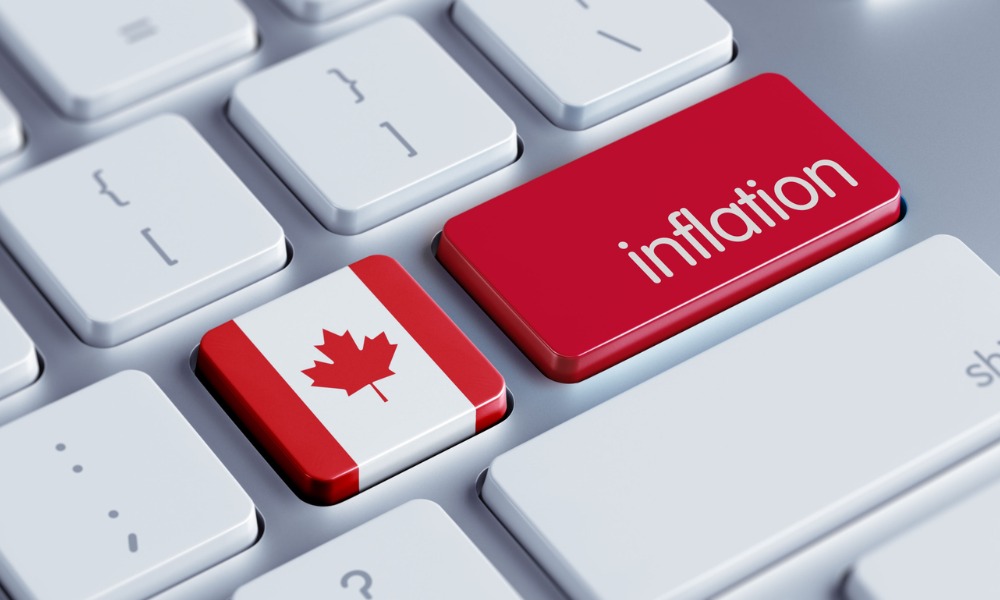Bank of Canada Governor Tiff Macklem discusses inflation risks, interest rates, and economic challenges ahead

In an exclusive interview with the Financial Post, Bank of Canada Governor Tiff Macklem discussed the evolving concerns regarding inflation.
The Bank of Canada began its rate-hiking cycle over two years ago to combat rising inflation. While significant progress has been made, new challenges are emerging. Macklem emphasized that while the focus was initially on reducing inflation, the concern now is preventing it from falling too far.
He stated, “We do need to increasingly guard against the risk that inflation falls too far. We want inflation to come down, but we want it to come down sustainably to two percent.”
Reflecting on his personal experience with inflation, Macklem stated, “I grew up in the '70s, so I know inflation, I felt inflation, I saw the anger it created.”
Last month, Macklem suggested that the Canadian economy might be experiencing a “soft landing” where inflation could return to the two percent target without a significant increase in unemployment.
However, the unemployment rate rose to 6.4 percent in June, raising concerns about a potential recession.
Macklem noted, “We see growth is going to be picking up, we think inflation will keep easing to our two percent target, so we’re not expecting a big slowdown in the economy, we’re expecting growth to pick up.”
Despite the recent decision to cut interest rates to 4.5 percent, economists predict further rate cuts by year-end with some criticizing the timing of these cuts.
Macklem acknowledged the criticism about the timing of the rate cuts, stating, “Look, there’s people who are going to say we’re late, people who say we’re going too fast. We want commentary, we want good discussion, we want to see good analysis.”
The Bank of Canada believes the economy has needed and still needs somewhat restrictive policy. However, more rate cuts are possible if inflation continues to decline towards the target, which policymakers expect to achieve next year.
Macklem acknowledged that Canadian households feel the effects of a recession, given the four consecutive quarters of contracting per-capita GDP growth. He noted record-high household debt and the 180 percent debt-to-income ratio, with many mortgages up for renewal next year.
“I think Canadians should take from this that look we’ve been through a difficult period, we’re not all the way back, but we’re coming out of it,” he said. “Interest rates are coming down, that means that Canadians are going to have more income left after they made their debt payments to spend on other things.”
The population boom in Canada has also attracted attention due to its impact on inflation and economic growth. In March, the federal government has committed to capping the number of non-permanent residents at five percent of the population.
Macklem noted, “Since the government announced their measures to reduce the net inflow of non-permanent residents, those are just starting to have an effect. It’s probably going to be the fall before they have much effect; meanwhile, population has continued to move up.”
“We do devote quite a bit of attention in the monetary policy report to try to explain what we think will happen with population growth because that really underpins our forecast,” he reassures.
Regarding potential US trade disruptions, Macklem highlighted the importance of the Canada-US trade relationship, noting that any changes in trade policy could affect Canada’s economic outlook. He stated, “If uncertainty is unusually high, businesses might tend to hold back on investment until the fog clears.”
Macklem also reflected on the lessons learned during the pandemic, emphasizing the need to understand the impacts of actions taken, such as quantitative easing.
He acknowledged the widespread dislike for inflation, noting, “There is a whole new generation of Canadians, unfortunately, who had to experience inflation for the first time, and it’s been pretty painful.”
Macklem added that the usual relationships between interest rates and export demand might not perform as expected amid uncertainties. He mentioned that Canada-US bilateral trade is the biggest trade relationship in the world, with Canada being the largest single-country destination for US exports.
The Bank of Canada plans to publish a report early next year to explain its actions during the pandemic. Three experts will comment on the report to highlight any gaps in lessons learned and research.
Macklem concluded, “The idea of this report is to take all this work — much of it is already out there — and try to summarize it and draw out the lessons.”



